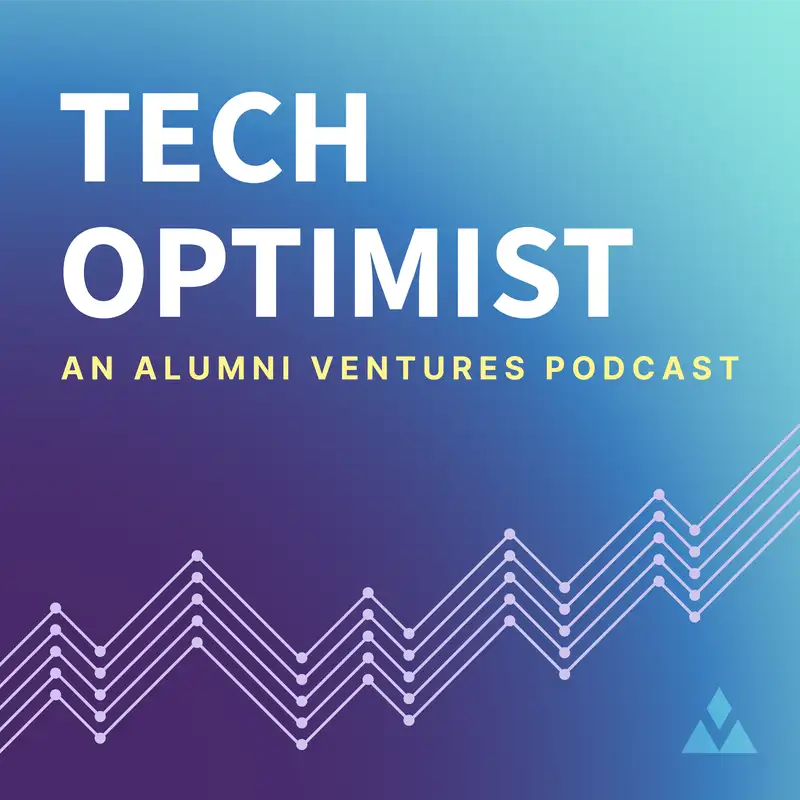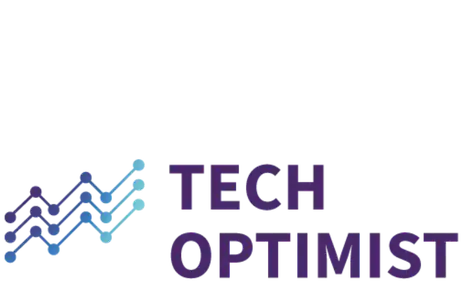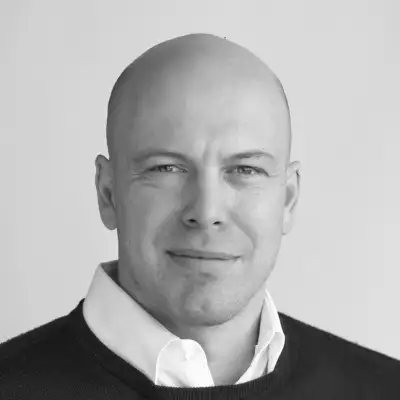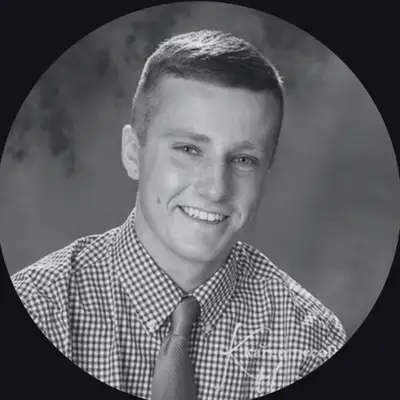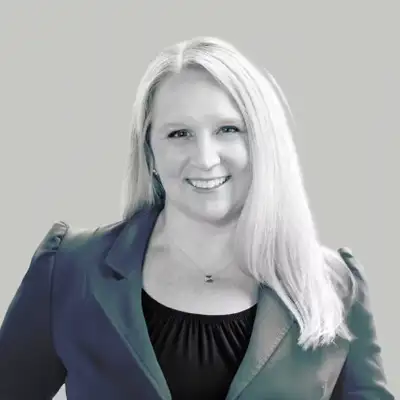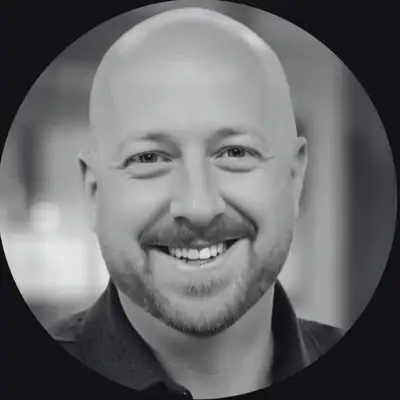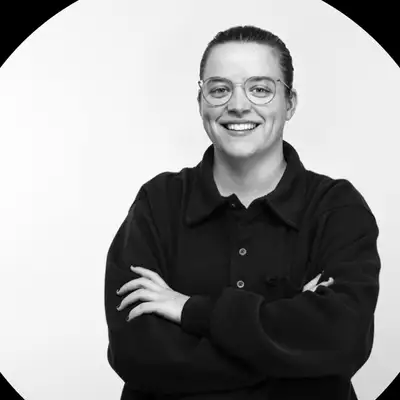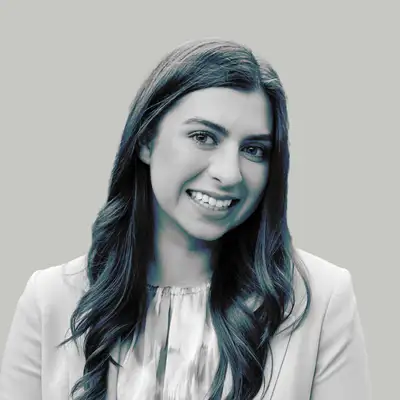#19 - 3D Body Scans: Coming to Your Gym
Narrator :
Today we're going to talk to a company who has made some Star Trek tech real. This is the Tech Optimist.
Alex Wayenberg:
We are reinventing personal health with our AI-powered photorealistic pretty body scanner to bring a device that can change the way we see healthcare.
Mike Collins:
It's not just the pounds, it's not just the stuff that you can't see, but I do think this kind of thing can be a huge tool in that journey for people.
Alex Wayenberg:
We will be able to model the performance of athletes by modeling their musculoskeletal structure.
Narrator :
In a world captivated by criticism, it's easy to overlook the groundbreaking technologies shaping our future. Lets shine a light on innovators who are propelling us forward. As the most active venture capital firm in the US, we have an exceptional view of tech's real world impact. Join us as we explore, celebrate, and contribute to the stories of those creating tomorrow. Welcome to the Tech Optimist. As a reminder, the Tech Optimist podcast is for the informational purposes only. It's not personalized advice and it's not an offer to buy or sell securities. For additional important details, please see the text description accompanying this episode.
Mike Collins:
Hi, welcome to the Tech Optimist podcast. We're today visiting with another early stage AV portfolio company Shape and it's CEO, Alex Wayenberg. Alex, welcome to the show.
Alex Wayenberg:
Thank you.
Mike Collins:
So just kick it off and tell us a little bit about Shape and what you guys do.
Alex Wayenberg:
Yeah, so I'm co-founder and CEO of Shape, and we are reinventing personal health with our AI-powered photorealistic 3D body scanner that is called ShapeScale. It actually tracks how your body shape change over time. For example, by tracking your 3D body shape, when you lose or gain four pounds, we can actually show you exactly where. And that matters a lot because you could have gained four pounds of lean mass in your upper body and be overall healthier and you're going to live longer, or you could have gained four pounds of fat in your midsection, some of it being visceral fat, which would dramatically affect your life expectancy.
Mike Collins:
Yeah, so I mean as I think most of our listeners know that we think really the class of GLP-1 drugs are pretty significant technology and we're just at the beginning phases of, but over the next decade we think that this is going to have a profound impact on society. Again, I've shared publicly that I've dropped 55 pounds, I'm an ex-athlete, but covid in life I had put on some extra weight and that we're actively looking for investments in this space. And Shape I think is a great example of it. So moving beyond, for us it was two themes, GLP-1 that people are going to be more interested in their body composition beyond just a number on a scale.
And this combination of software and hardware we think is also a theme that is going to be really important over the next decade. And a big believer in Alex as a leader. And those are the two things we look for is a big opportunity, a change in the marketplace and a team that we can get behind early in its development. So we're super excited about Shape. So tell us a little bit about the business strategy, Alex. I think there's both, you think of the consumer side, but also how do you think about this as from a business model standpoint?
Narrator :
Shape, as mentioned has launched their premium product, ShapeScale. Alex next begins to dive deeper into their business model, but I wanted to share Shape's mission statement from their website to prep your mindset for the conversation that ensues directly after this. Our mission at Shape is to empower individuals to take control of their health and wellness through innovative technology. We strive to create a world where tracking and monitoring physical fitness is effortless, accurate, and accessible to all. By bridging the gap between the human body and technology, we aim to revolutionize the way people understand and improve their health. With a commitment to design, engineering and data science, we are dedicated to pushing boundaries and delivering products that inspire and improve lives. Let's get back into the conversation. Take it away.
Alex Wayenberg:
Yeah, I mean we thought initially to go directly to consumer, but we realized there is so many things that we can actually learn from experts in the field, whether they're personal trainers, coaches of professional sports team, whether they're bariatric surgeons or weight loss specialists or even plastic surgeons. There's so many things that we can learn from them by going B2B to C first, and at the same time growing a very healthy business in terms of annual recurring revenue that it was too good of an opportunity to pass on. Because all these learnings that we can take from these experience, we can after bring them to people's home in a lighter version.
Obviously we're not going to replace your doctor. But that allowed us to really have a very interesting and I think innovative go-to market strategy where currently, I mean we're in a hundred business locations including weight loss clinics, gyms, personal trainer, plastic surgeon, and even physiotherapists that are using our product, but we are going to be, by the end of this quarter, we're going to be in 200 location. So we have literally double that number in less than a quarter. And so that allow us to reach a lot of people and get a lot of learnings and that's what a startup I believe should do.
Mike Collins:
Do you sell these units? Do you lease them? Is it a flexible approach that way How do you-
Alex Wayenberg:
That's an excellent question. Actually from the get go, we realized that, and that goes back to the trend that you were saying about hardware plus software. There are incredible synergies there of having a physical device that actually capture unique data set that is personal to you. And then on top of that, we put in AI and intelligence to provide unique services. So in the end, we are more of a software as a service platform and the hardware is just an enabler.
So businesses are getting ShapeScale for $200 per month with no upfront cost. And we've signed up a lot of businesses. We have been growing over 50% months over months for the last nine months, from 10K in ARR at the end of Q3 last year. We're almost at 450k in ARR at the end of this quarter. But we're doing the same for consumer as well, is that we will sell them the device, but most of the value they will get through software and services and therefore there's a recurring payment as well for the consumer. A small subscription depending on what level of personalization you would like, what level of service you would like.
Mike Collins:
Yeah, no, and I could see from a business perspective, if you could close one new plastic surgeon surgery case or you could sign up a couple more people into your gym, the ROI on this is probably, they're doing it in a very business development perspective, I assume. So I think that's probably a segue right into our audience in the Alumni Ventures community, which is the ask is, "Hey, if this is something that might help you in your business." Can you kind of just rattle off the kinds of people again, Alex that might be interested in the ShapeScale?
Alex Wayenberg:
Yes. So if you can introduce sports team, coaches, personal trainer, weight loss doctor or clinics, bariatric or plastic surgeons, we can help them bring their practices or businesses to the next level by providing unique insights for them and their clients. And one of the example I want to give is a weight loss clinic in Las Vegas that's working with GLP-1 that triple their conversion since they started using ShapeScale by showcasing what is going to happen to their client in a very visual way. They went from 30% sign-up rate to 90% sign-up rate literally by incorporating this in their sign-up process. So that's the first ask I have for the community. The second one, we're building a product that we want to put in everyone's home because that has incredible implication on health and healthcare. So if you are thinking of getting one for your home, we're going to have a special discount for Alumni Ventures when we launch officially at the end of this year.
Mike Collins:
And again, I would also say is because we're going to be picking up one for our company here, so again, I would encourage you as kind of a employee benefit, I know that there's something like 16 million Americans on GLP-1 drugs. That number will probably double, I think in the next 12 to 24 months is supply increases, knowledge increases. I know at our company of 125 people, a number of people that are on this medicine doubles every six months. So again, as a corporate benefit, again, Alex, if you're an AV portfolio company or just a friend of Alumni Ventures, again reach out to Alex.
I think there's some HR departments, people in culture where increasingly this is something that could be made available maybe in the same room where we reserve a space for nursing mothers, parent kind of thing. You can put it in there privately for sure. But again, I think as people think about this lifestyle choice, the before and after picture or during, it is really I think one of the bits of advice that I personally give to people, friends and family that are going on these drugs is I think it is really a great idea to take a picture once a month for your journey. Because really it's not just the pounds, it's not just the stuff that you can't see, but I do think this kind of thing can be a huge tool in that journey for people.
Keaton Nankivil:
Hey everyone, taking a quick time out so I can tell you about the sports fund from Alumni Ventures. AV is one of the only VC firms focused on making venture capital accessible to individual investors like you. In fact, AV is one of the most active and highly rated VCs in the US and we co-invest alongside renowned lead investors. With our sports fund, you'll have the opportunity to invest in a portfolio built around tech and business advancements across the sports world from personal wellness to sports media to team ownership. This fund is focused on companies that have the potential to tap into the massive global sports market that is expected to exceed $250 billion by 2030. To get started visit av.ac/funds/sports. Enjoy the rest of the show.
Alex Wayenberg:
Oh yeah, I mean it's the perfect companion for these kinds of treatment. First of all, it creates more engagement and the visuals speak for themselves. Some people also don't realize they're losing so much and so fast. And so this is kind of them reconnecting with their body and understanding, "Hey, this is what is happening, this is where I'm losing the weight." And typically it gets them even more excited to be on that journey and take other steps that are also necessary. And I think you've been talking about this in your other interview about GLP-1 is that you need to have at some point the lifestyle change. You need to get the food noise under control. You need to get that diet a little bit higher on protein. You need to get the exercise going.
And ShapeScale is amazing for that because at some point you getting on a plateau, right? You're losing the fat but those you want to do more effort and more effort is that you're going to start exercising, you're going to feel better about exercising because you're not going to hurt yourself. So you're going to build lean muscle mass, and that's great, especially as you age for bone health because it's going to maintain your bone density, it's going to maintain your mobility and your posture. So your weight is going to stop to change at some point. But Shapescale can actually show you what's going on. And some people have lost zero weight, but you can see literally the volume is moving from the bottom of their waistline up to their body and their legs and they're adding literally years and years to their life expectancy.
Mike Collins:
No, I couldn't agree more, Alex. I mean, it's almost like the twin pillars of weight loss. One is the weight loss and losing the fat, but then it is about exercise flexibility, lean muscle mass and just... I was with my brother in Colorado, Summit County this past week. And it's just we're similar ages, late fifties and wanting to continue to ski, to bike, to go on long hikes at altitude, to fish, fly-fishing, you're squatting, you're casting, those kinds of things. If you want to do those in your sixties and seventies and maybe even the eighties, again, this is just another tool to I think, motivate and just monitor your progress as you put in the work. Talk to me a little bit about sports. I can think about football teams and those kinds of things. What's your perspective on this as a tool for teams in sports?
Alex Wayenberg:
Well, right now it is not the most focus we have because we're just seeing more traction from other segments. Typically, the weight loss and plastic surgery as well we're seeing a lot of traction on that side. But we do have a very strong base doing sports and I think it's going to be an incredible tool because first of all, right now, I mean we can do body composition in a pretty advanced way by directly inputting your body shape into an AI model that correlates that with a DXA scan. So we have a dataset of a thousand DXA scan and we are getting some amazing result. We can estimate visceral fat, we can estimate your bone mass and the lean muscle mass so we can do all the BMR calculations.
So we do 90% of what the DXA scan does without having a DXA scan for a team. It's like 10 minutes of each athlete there. It's a one-minute scan for each athlete. We have face recognition, they can just step one by one on shape scale, even just to measure weight. We can deactivate the scanning and they can just get the weight of everyone on the team one by one in just literally two minutes just because we have this technology. But I think beyond that, when you think from a musculoskeletal standpoint, we will be able to model the performance of athletes by modeling their musculoskeletal structure and how we can in the end help them perform better. Because in the end it is physics and by inferring that structure, we will be able to provide highly personalized plan to get those, because you're already at the 99%, how do you squeeze this last 1% from your top athlete so he can beat the competition.
That's what be able to provide in the future. We still have some work to do on that, but we can, for example, already animate the scan. We can already model a lot of things, infer what is going on inside by just looking at what is outside of the body by having this correlated data set. And that's what gets me, I'm an athlete, right? So the origin story, maybe we're going to talk a bit about this, is that I used to do gymnastic at a pretty high level, training 20 hours a week with champions, et cetera. And I keep doing sport every day here in San Francisco. So bringing a new technology to athletes to help them perform is something that I care deeply about.
Mike Collins:
Yeah. So tell us a little bit more about the origin story. How did you get off the ground and where you've been and tell us a little bit more about where you're going, Alex.
Alex Wayenberg:
Exactly. So like I said, I was an athlete training gymnastic 20 hours a week. So I've always been in a great shape. I'm one of the lucky to being born almost like that and have this asset, but that's until I moved in 2010 to China for work. And there's one thing that you need to know about me, I love Chinese food. So when I moved to China, I started eating Chinese food, pretty much breakfast, lunch, dinner. It was mostly high carbs diet, noodles, the delicious bao and dumplings.
And after a couple of months, my wife asked me if we were getting pregnant and she was talking about me and that was the first time in my life I felt like, yeah, actually it's a little bit like a story about covid, right? Things got in the way and I was working hard and not taking care. So I hired the personal trainer and I started a protein rich diet and I do that for five weeks and then I buy the latest connected scale. So I was very excited and after a couple of weeks what happened? Well, obviously I gained four pounds.
Mike Collins:
Muscles, happy to be back.
Alex Wayenberg:
Because I build muscle pretty fast and muscles are denser. And so then I look at myself in the mirror and I realize I look different. My clothes are fitting different, already start to feel my shoulder opening, my posture is better, and then it hit me how many people are struggling with that same problem, especially the ones that are not as fortunate with their metabolism or as fortunate with sports that I was. What must have been the journey for them? And also it made me realize, "Wait, we're measuring the wrong thing." If you can't measure it, you can't manage it.
The body shape change actually provide you a more engaging, that's important, the engagement in the feedback loop, but also a faster feedback loop. You start doing a new routine, you can see the effect and that directly hit me. And another thing hit me is what you said about the combination of hardware and software, because I had worked all my life on building hardware products. What is the most important thing is actually the data that they collect and what you can do with it. And this become increasingly important, especially in the age of AI.
Mike Collins:
Ai, yep.
Alex Wayenberg:
If your device can capture a unique data set and extract insight from there, well, that's it. Someone would have to recreate that data set. And that's what takes the time, right? The algorithm is always getting better. Yeah.
Mike Collins:
And the other thing I think that was part of our beta and you and the company, Alex, is the evolution that this between version one, version two, version three, we just think that there's huge option value here with the data. Obviously B2B, B2B2C can provide a great structure for that. I think obviously the technology of what you're going to be able to learn about the human body from these kind of scanners will grow over time in our opinion.
And I also think if we're going into a world that is more digitized as well, I think there's a future that may be 5, 10, 15 years away where a device, this device or a device like it that is scanning, you knows your body can be kind of a virtual agent for you. So once you scan it, once you scan Mike, it's not a huge step to create a virtual avatar of Mike, right? Kind of thing. So again, I think whenever you invest in a company like Shape, you're somewhat buying an option on what Alex and his team and the data as a platform could become, especially when you're in... this is not a series D that we're participating in where they figured that all out so likely to evolve.
Alex Wayenberg:
I personally believe it's one of the greatest opportunity of this century to bring a device that can change the way we see healthcare. I mean, every science fiction movie has a body scanner that magically can detect an anomaly in your body and potentially says, "Okay, this is what needs to be done." Well, it's not going to be a CT scan because this is radiation. It's not going to be an MRI machine because it would send every metal object in your house flying around, right?
Narrator :
So Alex here brought up a really fun sort of concept that I wanted to dive into a little bit just for fun. He talked about how in sci-fi movies and in TV, there are sci-fi body scanners or genetic technology examples throughout pop culture. So I wanted to share a few because I think some of them are really cool and some of them are from some of my favorite movies. So we're going to start at the OG from the 1966 Star Trek series. So in the wrath of Khan, Kirk uses a retina scanner to access Project Genesis data. And then at the beginning of the episode, I gave you a little bit of teaser on the tricorder. So the tricorder is that handheld device that Spock and Kirk and all of them use to scan for record technical data. Now there's a medical version also, which can be used to diagnose diseases and record body stats, which is kind of more along the line I think of what Alex was talking about.
And then we'll hop to a little bit more modern, Wall-E from 2008, Eve. Eve is a perfect example of this. So E-V-E, her name, the white droids name extra terrestrial vegetation evaluator, and she's a droid equipped with a scanner to detect self-sustaining life. So you know in the movie where Wally shows her the boot full of the plant and then absorbs the boot with the sustaining life in it and it shuts down. And then that's kind of what the whole movie's about. So that was a pretty cool scanning technology by Disney. And then also in the Disney realm, we're going to end with J.A.R.V.I.S. from the Iron Man movies. So not only is J.A.R.V.I.S. an exoskeleton personal assistant for Tony Stark, but he also scans Tony Stark's body and his equipment and his suit and everything to make sure his operation is at his best possible capacity. So yeah, figured I would just share a few fun sci-fi genetic technology examples and let's get back into the interview.
Alex Wayenberg:
But a device where you walk in front of and automatically watches over you. I mean to date, it's a robotic scanner that rotates around your body, but it's going to be included in your wall and you will walk out in front every morning and it's going to watch over you. It's not just about fitness, dieting and aesthetic. We already know that we can... Dermatologists are like, "Oh wow, you can take a picture every time of the same location, guaranteed good photographic quality." But we can track melanoma like this. That's exactly what we do. And we found dozens of things like that including breast cancer, deep vein thrombosis, stress fractures, infections that we could catch early on. And that's one of the thing that I deeply care about because one of my brother passed from cancer, from a form that he could have been saved if we would've caught it earlier.
And so that's one part of the thing, which is there are really so many insights and nobody has looked at your body in terms of body imaging from non-radiation or non-high magnetic, just using visible and non-visible light. So hyperspectral, if you wish, so that's one thing. But then there's another opportunity that is also there because if you create a device that have people coming to every single day, now you became the front end, you became like Amazon. So if I tell you Amazon is going to build something on top of having people coming every day to their store, you're going to believe them. If I tell you Amazon's going to be FedEx and replace FedEx.
If I tell you FedEx is going to build Amazon, you're going to laugh, you're going to be like, "No way." So having that unique connection with the user, a regular one almost every single day or every day because we're in their home, I think that's why it's the greatest opportunity. Think about you hurt your knee and your knee is swollen. We have your credit card information and your insurance information. The AI automatically find out that there's a covered piece of compression where that includes lidocaine or anti-inflammatory capsules that you can get for free. So ShapeScale is going to get you free stuff in your home for you, just personalized to your body shape and what is going on with your body. And that is a new form of healthcare. We have basically created the real preventive healthcare.
Mike Collins:
I mean, if you think about the future of healthcare, it starts with the data, meaning the measurements, the blood work, the visual, all of that. I think where we're headed is increasingly nursing doctoring, at least initial diagnosis or triaging is going to become more and more kind of AI driven and software driven to allow the people to do the higher value added summary, oversight. Surgery obviously is not going to be done for a long time with robots, but I do think the scanning thing, scanning and data, whether it's through wearables, through it's a whole body scan, I think is going to have a role as well. So again, I think there's tremendous opportunity for Shape and what you're doing
Alumni Ventures:
Ready to invest in the next wave of healthcare innovation. Alumni Ventures Healthtech Fund provides you with cutting-edge access to disruptive medical startups. From groundbreaking treatments to revolutionary medical devices, we help you create a venture portfolio in this rapidly changing space. Visit av.vc/healthtech to get started.
Mike Collins:
Alex, what's next for Shape?
Alex Wayenberg:
Well, we just finished building our 10,000 square feet factory near Shanghai, and now we have our first mass-produced batch of 1000. We actually got the first 100 delivered last Friday. We're pretty excited about this.
Mike Collins:
Congratulations.
Alex Wayenberg:
I mean, we already have a lot at businesses and in the home. We have actually all the metrics that we need for series A or even B level. So our NPS is in the high sixties. We're getting organic business, people expanding, installation, and even some metrics are series B level, like our CAC payback time is less than six months. Our churn is less than 10%. And we know how even to further improve this because it's a early product, we're still learning and constantly talking to our customers and making those improvements and fixes they are asking.
The only metric where we are still working on is that we think we're a bit early in terms of revenue. And our target's to hit 1 million ARR. And we are executing superfast on that. Like I was saying, we're growing 50% months over month, so we're going to hit this in the next two quarter. With the round that we just closed we have enough money to reach... run in profitability by the end of the year. So yeah, we're going to look at opening our series A once we open, once we get to that 1 million ARR.
Mike Collins:
Wow. Super. It sounds like you're well on track. So Alex, as an athlete, tell me your favorite productivity hack.
Alex Wayenberg:
I mean cold shower or cold plunge in the morning. I get that for free here in San Francisco because I'm surfing at first light.
Mike Collins:
Okay, there you go.
Alex Wayenberg:
So this morning we're surfing under the bridge with one of our computer vision interns.
Mike Collins:
I would say a third, sorry to interrupt, but a third of the venture capitalists in the morning, you're likely to raise your series A by getting up and cold plunging under the bridge in San Francisco. Just introduce yourself a lot, Alex.
Alex Wayenberg:
Yes.
Narrator :
Honestly, with this productivity hack that Alex shared, the cold plunge, I wanted to look into a little bit of the benefits of it because I'm starting to think about maybe doing the cold plunge every morning. I think it's a really cool idea. So I wanted to share a few benefit facts from just doing a cold plunge or from doing a cold shower every morning. So cold plunges may help treat depression and improve mood by increasing dopamine and endorphins within your body, which can make you feel more happy and alert. And then sort of research suggests that cold plunges can also lead to long-term mental health benefits such as reduced anxiety and depression. But then some physical attributes is cold plunges may help with pain relief. So cold water therapy can reduce swelling, lessen pain, and speed up muscle recovery. I mean, it can also help with inflammation, blood circulation, it can help sort of with metabolic efficiency, blood sugar and insulin sensitivity. So overall it seems like a pretty good thing to start adding to your morning routine.
Alex Wayenberg:
So that is one. I have another one, which is more business related, is I always like to plan tomorrow the night before because it brings a lot of clarity in your execution and sometimes at night you have challenges and they're getting solved. And then I have another one actually for people who are traveling a lot because I'm traveling all the time back and forth to China and conference around the country. So that's my favorite kind of cardio, full body workout is start rope skipping. It's an excellent full body workout that you can do anywhere. The rope is light and easy to transport. All you need to have is the right music to get you motivated. And when I travel, I just do 30 minutes of skipping as a warm-up and then a short HIIT workout and then the cold shower. So it's part of that cold plunge trick.
Mike Collins:
No, it's my wife's favorite form of exercise is skipping rope actually. And it's just so portable, so easy, and it's just so effective.
Alex Wayenberg:
And it's fun. And it's fun. You can do tricks. So as a gymnast, I love to do tricks. So being able to not always do the same movement is something that train your coordination, your mobility, your reaction time. You are exercising different kind of muscle fiber as well because you are always kind of reacting to the rope. So I think it's a great exercise.
Mike Collins:
Well, Alex, thanks for joining the podcast today. Again, we're super excited about being part of Shape and its journey. Again, strongly encourage our audience to reach out to Alex if this is something that you'd like to get in early on. Again, Alex, super appreciate your time today and looking forward to being part of your A round and we'll catch up soon.
Alex Wayenberg:
Thank you, Mike. It was a pleasure. Happy to come back anytime you want.
Mike Collins:
Excellent. All right.
Alex Wayenberg:
Thank you.
Mike Collins:
Thanks, Alex.
Narrator :
Thanks again for tuning into the Tech Optimist. If you enjoyed this episode, we'd really appreciate it if you'd give us a rating on whichever podcast app you're using and remember to subscribe to keep up with each episode. The Tech Optimist welcomes any questions, comments, or segment suggestions. So please email us at info@techoptimist.vc with any of those and be sure to visit our website at av.vc. As always, keep building.
